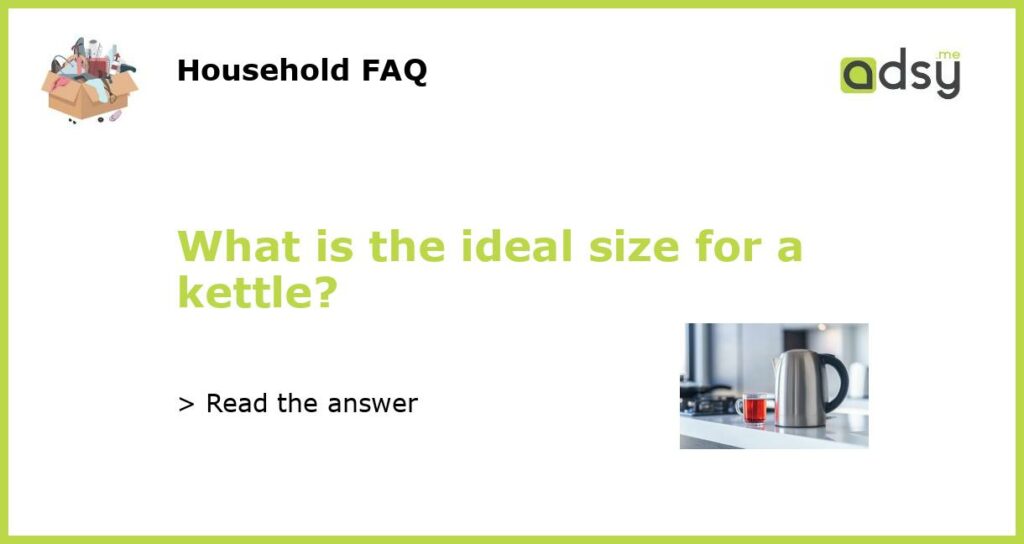Choosing the Ideal Size for a Kettle
When it comes to selecting a kettle, size matters. The ideal size for a kettle depends on several factors, including your household size, usage needs, and personal preferences. In this article, we will guide you through the considerations to help you determine the perfect size for your kettle.
Household Size
The first factor to consider is the size of your household. If you live alone or with one other person, a smaller kettle with a capacity of 1-1.5 liters may be sufficient. However, if you have a larger family or frequently entertain guests, a larger kettle with a capacity of 1.7-2 liters would be more suitable. This ensures that you can boil enough water at once to cater to everyone’s needs, saving you time and effort.
Usage Needs
The frequency and purpose of kettle use also play a role in determining the ideal size. If you mainly use the kettle for making a quick cup of tea or coffee in the morning, a smaller capacity kettle may be preferable. However, if you frequently cook or prepare meals that require boiling water, such as pasta or instant soups, a larger capacity kettle would be more practical. Additionally, if you often host gatherings or enjoy making large batches of hot beverages, opting for a bigger kettle will ensure you can meet your needs efficiently.
Kitchen Space
Consider the available space in your kitchen before deciding on the size of your kettle. If you have limited counter space, a compact kettle with a smaller footprint would be ideal. Compact kettles are designed to take up minimal space, making them perfect for small kitchens or areas with limited storage. On the other hand, if you have ample space, a larger kettle can be accommodated without much hassle.
Energy Efficiency
Energy efficiency is another important factor to consider when selecting a kettle size. Larger kettles require more energy to boil a larger volume of water, which may lead to higher energy consumption and increased utility bills. If energy efficiency is a priority for you, opting for a smaller kettle can help reduce energy usage. Additionally, a smaller kettle will also heat up faster, saving you time and further reducing energy consumption.
Personal Preferences
Finally, personal preferences should also be taken into account. Some individuals prefer the convenience of a larger kettle, even if their household size or usage needs don’t necessarily require it. Conversely, others may prefer a smaller kettle due to its compact size and ease of use. Consider your own preferences and habits when making the final decision.
In conclusion, the ideal size for a kettle depends on your household size, usage needs, kitchen space, energy efficiency preferences, and personal preferences. Take these factors into consideration to select a kettle that meets your requirements and enhances your daily routine.






